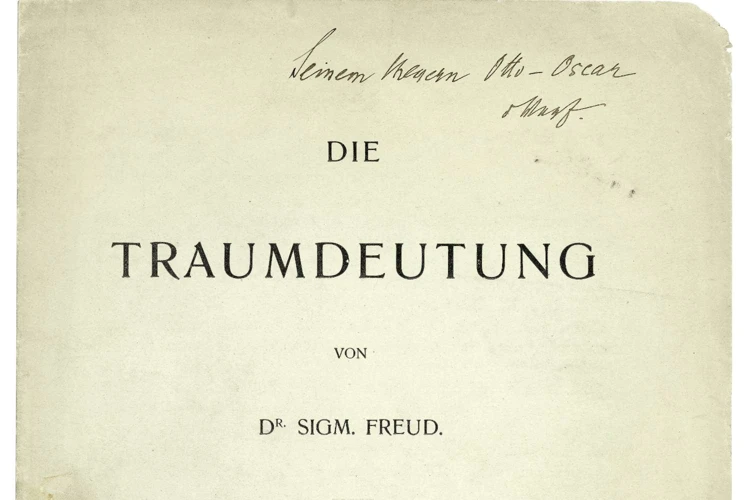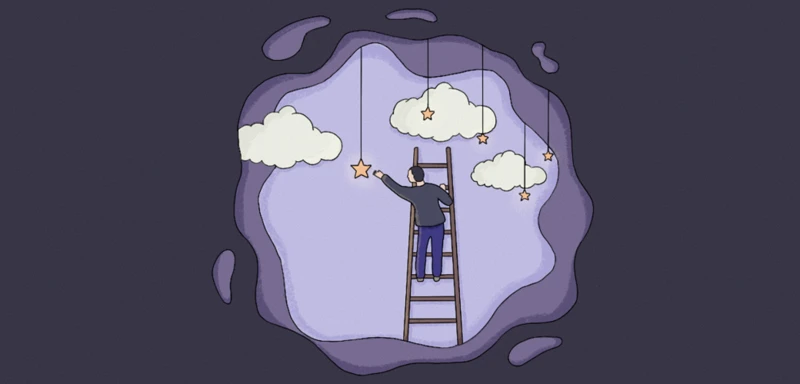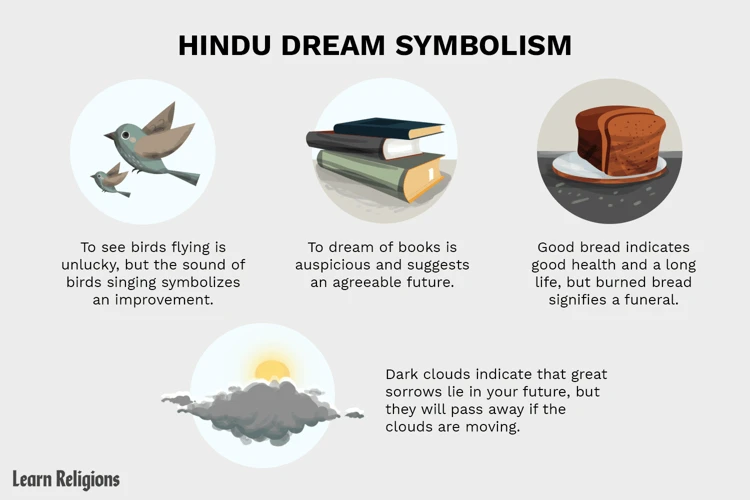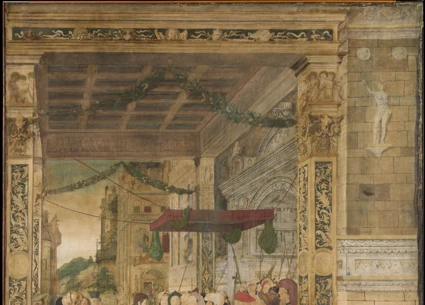Dreams have long fascinated and perplexed human beings. Whether they are vivid and bizarre or subtle and symbolic, dreams have played a significant role in cultures across the world. One particularly intriguing aspect of dreams is their potential for divination, in which they are believed to provide insight and guidance into various aspects of life. Dream divination, also known as dream interpretation, has a rich historical and cultural significance that spans ancient civilizations, indigenous cultures, and modern society. By exploring the historical roots of dream divination, its role in different cultures, and the significance of dream symbols, we can delve into the diverse ways in which dreams have influenced human life.
The Historical Roots of Dream Divination

Dream divination has deep historical roots, tracing back to ancient civilizations and indigenous cultures. In these societies, dreams were seen as powerful sources of guidance, insight, and prophecy. In ancient civilizations such as Mesopotamia, Egypt, and Greece, dreams were considered direct messages from the gods. People sought the interpretation of dreams from priests and spiritual leaders, who believed that dreams held important information about the future. This belief in divine communication through dreams continued in the Middle Ages, where dreams were seen as a means of connecting with the divine. In indigenous cultures around the world, dream divination was and still is an integral part of their spiritual practices. Native American tribes, for example, believe that dreams possess spiritual and symbolic meanings that can guide the individual and the community. Today, dream divination has evolved, incorporating psychological perspectives and integrating with religious and spiritual practices. People turn to various methods, such as connecting dreams with tarot readings or using common tools like dream journals and symbols to interpret their dreams and gain deeper understanding of their messages. The historical roots of dream divination have laid the foundation for its continued significance in modern society, where people seek guidance and insight from their dreams. (Link: interpreting dreams for guidance and insight)
Ancient Civilizations and Dream Interpretation
Ancient civilizations held a deep belief in the power of dream interpretation and considered dreams to be direct messages from the gods. In Mesopotamia, for example, dream interpretation was a highly valued skill, and professional dream interpreters known as “diviners” were sought out for their expertise. These diviners believed that dreams were a means of communication between the divine and humans, offering guidance, warnings, and prophecies. The Egyptians also placed great importance on dream interpretation, as evidenced by the presence of dream books that contained symbols and their corresponding meanings. These dream books were used to decipher the messages received in dreams, helping individuals make important decisions or anticipate future events. Similarly, Ancient Greeks believed that dreams were a channel through which the gods communicated with mortals, and individuals would seek guidance from temples and oracles to interpret their dreams. The historical significance of dream interpretation in ancient civilizations underscores the universal fascination and belief in the profound meaning and influence dreams hold in shaping human lives. (Link: connecting dreams with tarot reading)
Dream Divination in Indigenous Cultures
Dream divination in indigenous cultures holds a profound significance in their spiritual and cultural practices. These cultures believe that dreams are a means of communication with ancestors, spirits, and the divine. In Aboriginal cultures of Australia, for instance, dreams are considered a way to connect with the Dreamtime, a creation period where ancestral beings shaped the land and its inhabitants. Aboriginal dream diviners, known as “clever people,” interpret dreams to understand spiritual messages, potential dangers, and guidance for daily life. Similarly, in many Native American tribes, dreams are seen as sacred experiences that offer insights into personal and collective destinies. Tribal shamans and dreamkeepers are responsible for interpreting dreams and offering guidance based on their symbolic meanings. Communities in South America, Africa, and Asia also recognize the cultural significance of dream divination. These cultures employ diverse techniques, such as dream sharing in groups, dream dances, or the use of specific dream symbols and rituals. The practices vary from culture to culture, but the underlying belief in the power and wisdom of dreams remains consistent. Dream divination continues to be an important aspect of indigenous cultures, helping individuals and communities navigate their spiritual paths and find guidance in their daily lives. (Link: common tools for dream divination)
Dream Divination in Modern Society

Dream divination continues to hold significance in modern society, although its practice and interpretation have evolved. From psychological perspectives to religious and spiritual connections, dream divination takes various forms in the contemporary world.
Psychological perspectives on dream interpretation have gained popularity in recent times. Psychologists believe that dreams are a reflection of one’s unconscious mind, containing symbols and images that represent deeper psychological states and experiences. Professionals in the field of psychology use various techniques, such as dream analysis and therapy, to explore the meaning and significance of dream symbols. This approach allows individuals to gain insights into their subconscious thoughts, emotions, and desires.
Dream divination also maintains strong ties with religious and spiritual practices. Many religions, such as Hinduism and Buddhism, consider dreams as a means of divine communication. In these cultures, dreams are seen as messages from higher powers or as tools for meditation and spiritual growth. People engage in practices like meditation, prayer, and rituals to enhance their dream experiences and seek guidance from the spiritual realm.
In modern society, various tools and methods are employed for dream divination. Tarot cards, for example, are often used in conjunction with dream interpretation to gain a comprehensive understanding of the messages conveyed in dreams. Additionally, dream journals are popular tools for recording and analyzing dreams, allowing individuals to identify patterns, symbols, and themes in their dreams. These tools aid in the interpretation and exploration of the subconscious mind. (Link: Connecting dreams with tarot reading)
Psychological Perspectives on Dream Interpretation
Psychological perspectives on dream interpretation provide valuable insights into the significance of dreams in understanding the human mind. Sigmund Freud, the founder of psychoanalysis, believed that dreams were expressions of unconscious desires and repressed thoughts. According to Freud, dreams act as a “royal road to the unconscious,” allowing individuals to gain access to hidden aspects of their psyche. Freud emphasized the importance of dream symbolism and believed that seemingly random dream images represented disguised thoughts and wishes. Carl Jung, another influential psychologist, introduced the concept of the collective unconscious, suggesting that certain dream symbols and archetypes are shared across cultures and have universal meanings. Jung believed that dreams offered a glimpse into the collective human experience and that dream interpretation could provide valuable insights into an individual’s personal journey of self-discovery. Psychological perspectives on dream interpretation continue to be explored and expanded upon by modern psychologists and therapists. The psychological lens offers a valuable framework for understanding the deeper meanings and motives behind our dreams. It allows individuals to explore their subconscious, uncover unresolved issues, and gain a deeper understanding of their emotions and motivations. Through psychological dream interpretation, individuals can tap into the rich symbolism of their dreams and gain valuable insights into their inner world. (Link: interpreting dreams for guidance and insight)
Religious and Spiritual Connections
Religious and spiritual connections play a significant role in dream divination. Many religious traditions and spiritual beliefs hold that dreams are a means of communication between the divine and the individual. In Christianity, for example, dreams are mentioned numerous times in the Bible, often serving as a platform for divine revelations and guidance. The story of Joseph and his dreams in the book of Genesis is a prominent example of the importance placed on dream interpretation within the Christian faith. Similarly, in Islam, dreams are considered to be a form of prophecy and are believed to contain hidden messages from Allah. Islamic scholars offer interpretations of dreams based on their religious teachings. Hinduism also acknowledges the significance of dreams, considering them to be a way for divine beings to communicate with humans. The Sanskrit scripture, the Upanishads, explores the concept of dream divination and its connection to spiritual enlightenment. Additionally, many indigenous and tribal religions incorporate dream divination as a tool for spiritual guidance and connecting with ancestral spirits. The religious and spiritual connections to dream divination illustrate the belief that dreams are a sacred realm through which individuals can receive messages, guidance, and insights from the divine.
The Role of Dream Divination in Different Cultures

Dream divination plays a unique role in different cultures, reflecting the diversity of beliefs, practices, and interpretations. In Eastern cultures, such as China and India, dreams are regarded as powerful sources of cosmic wisdom and spiritual insight. The Chinese tradition of dream divination focuses on the intricate symbolism and imagery present in dreams, which are believed to hold hidden messages about one’s fate and fortunes. In India, dreams are seen as a way for the mind to communicate with the divine realm. Dream interpretation is deeply intertwined with Hinduism and is used to uncover messages from deities or gain insight into one’s karma and spiritual path.
In Western cultures, dream divination has evolved through psychological perspectives and religious connections. Influenced by the work of Sigmund Freud and Carl Jung, the interpretation of dreams in the Western world often focuses on psychological analysis. Dreams are seen as a reflection of the unconscious mind, offering insights into one’s fears, desires, and unresolved issues. Additionally, many religious and spiritual practices in the Western world incorporate dream divination. In Christianity, for example, dreams are believed to be a means through which God communicates with individuals, offering guidance, warnings, or prophetic visions.
In African cultures, dream divination has deep cultural significance. Dreams are seen as a channel for ancestral communication and are interpreted by tribal elders or diviners who possess special knowledge and spiritual abilities. Dream symbolism and narratives are often passed down through generations, forming an integral part of the cultural fabric. Similarly, in Native American cultures, dreams hold great importance as a spiritual connection to the natural world and ancestral spirits. Dream interpretation is conducted by shamans or spiritual leaders who help individuals understand the messages from their dreams and apply them to their daily lives.
In Aboriginal cultures, dream divination is rooted in the Dreamtime, a sacred concept that represents the creation period. Aboriginal people believe that dreams are a way to access knowledge, spirituality, and ancestral wisdom. Dream interpretation is considered a sacred practice, with elders playing a significant role in deciphering the messages conveyed through dreams.
The role of dream divination in different cultures reflects the profound influence dreams have on the human experience. From cosmic wisdom and psychological exploration to ancestral guidance and spiritual connection, dreams hold a place of cultural significance across the globe. (Link: connecting dreams to tarot reading)
Dream Divination in Eastern Cultures
Dream divination has held a significant place in Eastern cultures for centuries, with diverse approaches and interpretations. In Chinese culture, dreams are believed to be a connection to the spiritual realm. The Chinese have a tradition of dream interpretation that dates back thousands of years. They attribute great importance to dream symbols, seeing them as omens and messages from the divine or ancestral spirits. Dreams are often seen as guidance for important life decisions, and dream interpretation books are widely available to assist individuals in deciphering their dreams. In Hinduism, dreams are considered a glimpse into the soul’s journey, with the potential to reveal past lives or provide insight into the present. The Hindu scriptures, such as the Upanishads, discuss the significance of dreams and their relationship to the divine. Dreams may be seen as a way for deities to communicate with individuals, and dream interpreters are sought to help decipher these divine messages. In Japan, dream divination is influenced by Shinto beliefs and practices. The Japanese believe that dreams can offer guidance and warnings, and they pay close attention to dream symbolism to interpret their meanings. There are even specific dream dictionaries available to assist in understanding the symbolism within dreams. Eastern cultures approach dream divination with reverence and see it as a valuable tool for spiritual growth and guidance.
Dream Divination in Western Cultures
Dream divination in Western cultures has been influenced by a variety of factors, including psychology, literature, and popular culture. Sigmund Freud, the renowned Austrian psychologist, played a significant role in shaping Western perspectives on dream interpretation. Freud believed that dreams provided a window into the unconscious mind, with symbols and imagery representing repressed desires and unresolved conflicts. His work on dream analysis popularized the idea of using psychological frameworks to understand the meaning of dreams. In addition to Freud, other psychologists such as Carl Jung further expanded on the interpretation of dreams, focusing on the collective unconscious and archetypal symbols.
In Western literature, dreams have been used as powerful narrative devices to explore themes of identity, prophecy, and subconscious desires. Works such as Shakespeare’s play Macbeth, with its famous “witches’ brew” scene and haunting dream sequences, showcase the cultural significance of dreams and their potential for divination. Popular culture in Western societies has also embraced the concept of dream divination. The rise of spiritual practices like tarot card readings and astrology has contributed to the continued interest in understanding and interpreting dreams.
Dream interpretation in Western cultures often involves analyzing symbols, themes, and emotions present in dreams. Common symbols such as flying, falling, or being chased are thought to carry specific meanings depending on the individual’s personal experiences and cultural influences. Dream dictionaries and online resources have also gained popularity, providing interpretations and explanations for various dream symbols.
Dream divination in Western cultures reflects the intersection of psychology, literature, and popular culture. It highlights the fascination and desire to uncover hidden meanings and gain insights into the subconscious realm. By exploring the dreamscape, individuals in Western cultures seek guidance, self-reflection, and a deeper understanding of themselves and their lives.
Dream Divination in African Cultures
Dream divination holds a significant place in the rich cultural traditions of various African cultures. In many African societies, dreams are believed to be a means of communication between the living and the spiritual realm. One example is the Yoruba culture of Nigeria, where dreams are seen as messages from ancestors or deities. The Yoruba people believe that dreams carry valuable information and guidance for individuals and the community as a whole. Dream divination plays a central role in traditional African healing practices as well. In the Zulu culture of South Africa, for instance, dreams are seen as a pathway to healing and a means to communicate with the ancestors. Traditional Zulu healers called “sangomas” interpret dreams to provide insight into the causes of illnesses and to guide the healing process. Dream divination in African cultures often involves the participation of community members or designated individuals who possess the knowledge and skills to interpret dreams accurately. These individuals, known as diviners or shamans, have a deep understanding of cultural symbols, ancestral wisdom, and spiritual traditions. They provide guidance and solutions based on the interpretations of dreams, which may involve rituals, offerings, or changes in behavior. Dream divination in African cultures is a powerful practice that connects individuals with their ancestral roots, spiritual beliefs, and communal values, contributing to the cultural richness and identity of these societies.
Dream Divination in Native American Cultures
Dream divination holds a significant place in Native American cultures, as dreams are considered sacred and hold great spiritual significance. In Native American traditions, dreams are seen as a means of communication with the spirit world and a way to receive guidance and insights. The interpretation of dreams is often carried out by individuals with special spiritual gifts, such as shamans or medicine people, who possess the ability to understand the symbolic language of dreams. Native Americans believe that dreams can offer guidance for important decisions, provide warnings about potential dangers, or offer healing and spiritual growth. Dream catchers, which are commonly associated with Native American culture, are believed to filter out negative dreams and allow only positive and meaningful dreams to pass through. These cultures often view dreams as a collective experience, and dream divination is sometimes practiced in group settings where the community comes together to interpret dreams and gain collective wisdom. Dream divination in Native American cultures is deeply rooted in their traditions and serves as a way to connect with ancestral spirits and receive guidance for personal and communal well-being.
Dream Divination in Aboriginal Cultures
Dream divination holds deep cultural significance in Aboriginal cultures, where dreams are seen as a powerful connection to the spiritual realm. Aboriginal cultures across Australia believe that dreams are a means of communication with ancestors and the Dreamtime, a concept that encompasses the creation of the world and spiritual beliefs. In Aboriginal dream divination, dreams are seen as a way of accessing hidden knowledge, providing guidance, and foretelling future events. Dreamtime stories and symbols are used to interpret the dreams, with each symbol carrying significant meaning. One common practice involves communal dream sharing, where members of the community come together to share and interpret their dreams. This collective approach to dream divination strengthens community bonds and reinforces the cultural significance of dreams. Through dream divination, Aboriginal cultures believe they can gain insights into their present lives, connect with their ancestral roots, and navigate the complexities of their contemporary existence. The rich tapestry of dream divination in Aboriginal cultures showcases the importance of dreams as a spiritual and cultural phenomenon.
The Cultural Significance of Dream Symbols

Dream symbols hold a profound cultural significance that varies across different societies and regions. While some symbols may have universal meanings, others are shaped by the specific cultural beliefs and values of a particular group. In many cultures, animals are commonly seen as dream symbols representing different qualities or characteristics. For example, in Western cultures, a dream of a cat may symbolize independence or mystery, while in Eastern cultures, it may represent good luck or fortune. Additionally, colors can also carry cultural significance in dream interpretation. In Western cultures, the color white is often associated with purity or innocence, while in African cultures, it may symbolize spirituality or ancestral connections. Religious and spiritual symbols, such as crosses, crescent moons, or lotus flowers, also hold cultural significance and may carry different interpretations across various faith traditions. It’s important to note that individual interpretations of dream symbols may vary, as personal experiences and cultural backgrounds influence one’s understanding of these symbols. Understanding the cultural significance of dream symbols requires a deep appreciation for the specific cultural context from which they arise. (Link: connecting dreams to tarot reading)
Common Dream Symbols and Meanings
Common dream symbols hold significant meanings that have been interpreted and analyzed throughout history. While the interpretation of dreams can vary based on individual experiences and cultural influences, certain symbols tend to recur in dreams across different cultures and time periods. One common dream symbol is water. Water is often associated with emotions, representing the depths of one’s feelings or the ebb and flow of life’s challenges. It can symbolize purification, cleansing, and renewal. Another prevalent symbol is flying. The act of flying in a dream often signifies a sense of freedom, liberation, or the ability to rise above obstacles. It can also represent a desire for independence or the pursuit of lofty goals. Dreams involving teeth are also common and can carry various meanings. For instance, losing teeth in a dream may symbolize feelings of powerlessness or insecurity, while healthy teeth can symbolize confidence and vitality. Animals, such as snakes and spiders, often appear in dreams and hold symbolic significance. Snakes can signify transformation, healing, or even deception, while spiders may represent creativity, patience, or entanglement in a complex situation. These are just a few examples of the rich tapestry of common dream symbols and their meanings. (Link: connecting dreams with tarot reading)
Dream Symbolism in Different Cultures
Dream symbolism varies across different cultures, reflecting the diverse beliefs and traditions of humanity. In Eastern cultures such as China and India, dream symbolism holds deep significance. In China, for example, dreaming of a dragon is considered a symbol of luck and power, while dreaming of a snake may signify impending danger. Indian culture places importance on animal symbolism, with dreaming of a cow representing prosperity and abundance. In contrast, Western cultures often interpret dream symbols based on personal experiences and societal influences. For instance, dreaming of flying is commonly associated with freedom and empowerment. In African cultures, dream symbolism is deeply rooted in ancestral and spiritual beliefs. Dreams are believed to provide communication with ancestors and spirits, and symbols such as water or fire hold sacred meanings. Native American cultures also have rich dream symbolism, with animals like the bear symbolizing strength and the owl representing wisdom. Aboriginal cultures in Australia view dreams as a pathway to connect with the Dreamtime, a term referring to the spiritual realm of ancestors and creation. Dream symbolism in these cultures often revolves around elements of nature and the spiritual realm. Understanding dream symbolism in different cultures allows for a broader perspective on the diverse interpretations and meanings that dreams hold around the world.
How Dream Divination Influences Daily Life
Dream divination holds immense influence over daily life, impacting individuals in various ways. One of the primary ways dream divination influences daily life is through healing and emotional guidance. Dreams often serve as a gateway to the subconscious mind, allowing individuals to access and process deep-rooted emotions and traumas. By interpreting and working through these dream symbols and themes, individuals can gain a better understanding of their emotional state and work towards healing and personal growth. Additionally, dream divination plays a significant role in decision-making and future guidance. Dreams are believed to provide insights into potential paths and choices, helping individuals navigate through important decisions. Many individuals turn to dream interpretation to seek clarity and direction in their personal and professional lives. The guidance obtained from dream divination can provide a sense of reassurance and confidence in decision-making processes. Dream divination can foster a deeper connection to one’s intuition and spirituality. By paying attention to their dreams and actively engaging in dream divination practices, individuals can develop a stronger connection to their inner selves and gain a greater sense of purpose and meaning in daily life. Dream divination holds the power to influence and shape one’s daily life, offering emotional healing, decision-making guidance, and a deeper connection to the self. (Link: connecting dreams to tarot reading)
Healing and Emotional Guidance
Dream divination serves a significant role in providing healing and emotional guidance to individuals. Dreams are believed to be a doorway to the unconscious mind, allowing buried emotions and traumas to surface. Through dream interpretation, individuals can gain insight into their emotional state and address any unresolved issues. Dreams can act as a cathartic release, allowing individuals to process their emotions and experiences in a safe and symbolic space. For example, recurring dreams or nightmares may indicate unresolved trauma, and by interpreting them, individuals can begin the healing process. Dream symbols and imagery often reflect deeply rooted emotions and desires, providing individuals with a profound understanding of their inner selves. By working with a dream interpreter or journaling about their dreams, individuals can uncover hidden emotions, address personal conflicts, and gain clarity on their emotional well-being. Dream divination serves as a therapeutic tool, offering individuals the opportunity to explore and heal their emotional wounds in a unique and profound way.
Decision-Making and Future Guidance
Dream divination not only provides insights into personal emotions and experiences but also offers guidance for decision-making and future planning. Many individuals turn to their dreams as a source of guidance when facing important choices or uncertainties in their lives. Dreams can often provide a unique perspective on these situations, offering symbols and messages that can be interpreted to provide valuable insights. For example, a dream about crossing a bridge may symbolize taking a leap of faith or overcoming obstacles in one’s path. By analyzing and interpreting these symbols, individuals can gain clarity and make more informed decisions. Additionally, dreams have the potential to offer glimpses into the future. Some cultures believe that certain dreams, referred to as precognitive dreams, can foretell events that are yet to occur. These dreams may provide warnings or guidance that can help individuals navigate their future paths. While the interpretation of these dreams requires a level of discernment, they can offer a sense of direction and empowerment. Whether seeking guidance for immediate decisions or seeking insights into long-term plans, dream divination provides a unique avenue for accessing inner wisdom and foresight. Ultimately, dreams can serve as a valuable tool in decision-making processes and guiding individuals towards their desired future.
Conclusion
In conclusion, dream divination holds immense cultural significance across different societies and time periods. The historical roots of dream divination can be traced back to ancient civilizations where dreams were seen as messages from the gods, and indigenous cultures where dreams were viewed as sources of spiritual guidance. In modern society, dream interpretation has evolved to incorporate psychological perspectives and religious/spiritual connections. Dream symbols have been studied and analyzed in various cultures, each with their own unique interpretations and meanings. Dreams play a role in daily life by providing healing, emotional guidance, and offering insights for decision-making and future guidance. The cultural significance of dream divination lies in its ability to tap into the subconscious and provide individuals with a deeper understanding of themselves and their surroundings. (List:
- Ancient Civilizations and Dream Interpretation: Dreams were believed to be direct messages from the gods, providing insight into the future.
- Dream Divination in Indigenous Cultures: Indigenous cultures view dreams as spiritually significant, offering guidance and symbolic meanings.
- Psychological Perspectives on Dream Interpretation: Modern psychology examines dreams as reflections of the unconscious mind.
- Religious and Spiritual Connections: Dream divination is connected to religious practices, such as connecting dreams with tarot reading or other spiritual tools.
- The Role of Dream Divination in Different Cultures: Dream divination varies across cultures, with specific symbols and meanings.
- The Cultural Significance of Dream Symbols: Common dream symbols hold cultural and personal meanings.
- How Dream Divination Influences Daily Life: Dream interpretation can provide healing, emotional guidance, and insights for decision-making and future direction.
) The cultural significance of dream divination persists today as people continue to seek wisdom and insight from the world of dreams.
Frequently Asked Questions
1. What is dream divination?
Dream divination, also known as dream interpretation, is the practice of deciphering the meanings and messages behind dreams. It involves analyzing the symbols, emotions, and events within a dream to gain insight into one’s subconscious mind and receive guidance or predictions for the future.
2. How does dream divination work?
Dream divination works by examining the various elements of a dream, including symbols, emotions, and actions, and assigning meaning to them. Different cultures and belief systems have their own interpretations of dream symbols, which can vary widely. By reflecting on the personal and cultural significance of these symbols, individuals can gain a better understanding of their dreams and their potential significance in their waking lives.
3. Can dream divination predict the future?
Dream divination is often believed to provide glimpses of the future, although the interpretation of these future predictions can be subjective. Some people view certain dream symbols or events as precognitive, while others see them as symbolic representations of subconscious thoughts and emotions. Ultimately, the interpretation of dreams and their predictive nature depend on personal beliefs and cultural contexts.
4. Are there specific techniques for practicing dream divination?
There are various techniques that individuals can use to practice dream divination. Some common techniques include keeping a dream journal to record and analyze dreams, meditating on dream symbols for deeper understanding, and seeking the guidance of experienced practitioners or spiritual leaders who specialize in dream interpretation.
5. Is dream divination culturally specific?
While dream divination has cultural roots and interpretations can vary across cultures, the practice itself is not limited to any specific culture. People from all walks of life and cultural backgrounds engage in dream divination as a tool for self-reflection, personal growth, and spiritual exploration.
6. Can dream divination have psychological benefits?
Yes, dream divination can have psychological benefits. Exploring the symbolism and meanings behind dreams can provide individuals with valuable insights into their subconscious thoughts, emotions, and inner conflicts. This self-reflection can lead to personal growth, enhanced self-awareness, and a deeper understanding of one’s own psyche.
7. Is dream divination connected to any religious or spiritual beliefs?
Yes, dream divination is often connected to religious and spiritual beliefs. Many religions, such as Buddhism, Hinduism, and certain Indigenous belief systems, incorporate dream divination into their practices. Dreams are seen as a means of communication with the divine or as portals to the spiritual realm.
8. Are there common symbols in dream divination?
While dream symbols can vary from person to person and culture to culture, some symbols tend to be commonly experienced across different individuals. These can include elements like water, animals, bridges, and flying. However, it’s important to remember that the interpretation of symbols is highly subjective and can vary based on personal experiences and cultural context.
9. Can dream divination be used for problem-solving?
Yes, dream divination can be used as a tool for problem-solving and decision-making. Dreams can sometimes provide clarity on unresolved issues or present alternative perspectives on challenges individuals may be facing. By examining dreams and their meanings, individuals can gain new insights that may help them approach problem-solving from a different angle.
10. How can one start practicing dream divination?
To start practicing dream divination, individuals can begin by keeping a dream journal, where they can record their dreams upon waking. They can also explore different dream symbols and their interpretations, either through research or by seeking guidance from experienced practitioners. It’s important to approach dream divination with an open mind, allowing for personal reflection and exploration.








